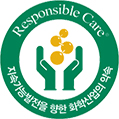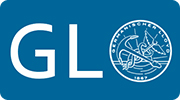SUSTAINABILITY
Safety & Health Management
Safety & Health Policy
금호피앤비화학(주)는 Responsible Care 활동을 통하여 환경/안전/보건의 지속적인 개선과 효율적인 에너지 사용을 위한 노력을 지속하여 사회적 신뢰를 구축하고, 지구환경 보전에 동참하기 위해 다음의 사항을 성실히 수행하도록 노력한다.
1. 제품의 개발/설계/생산/수송/서비스 등의 모든 단계에서 환경/안전/보건 및 에너지를 우선적으로 고려한다.
2. 환경/안전/보건 및 에너지의 효율적인 관리를 위하여 목표를 설정하고 이를 달성하기 위한 적절한 자원제공과 지속적인 개선활동을 전개한다.
3. 환경 친화적 제품 생산, 안전한 작업환경 제공, 근로자의 건강 증진을 위한 기술개발 및 도입을 위해 노력한다.
4. 모든 법규/규정 및 기타 요건과 목표는 문서화하여 전 임직원에게 전달하고 지속해서 준수되도록 교육훈련을 실시한다.
5. 임직원, 고객, 지역사회, 관련단체의 환경/안전/보건의 관심 사항에 대해서는 적극적으로 대화하고 이에 응한다.
6. 고객에게 제품의 위험성에 대해 충분히 자문하고 정보를 제공하여 안전한 사용, 수송 및 폐기를 유도한다.
7. 환경/안전/보건과 관련된 문제해결 및 기술개발을 위해 모든 이해 관계자와 협력체계를 유지하며 협력사와 공동으로 환경/안전/보건프로그램을 실천한다.
8. 당사와 모든 협력사는 무재해, 무사고 사업장을 만들기 위해 최선의 노력을 다하며 상호신뢰와 존중, 협력을 통해 사고 ZERO화에 기여한다.
9. 방침달성을 위해 총괄공장장을 경영자 대리인으로 지정하고 정기적인 검토와 감사를 통하여 전 임직원의 참여를 도모한다.

Goals and Action Plans

-
Strengthening
Safety/Health System• Safety & health system
implementation evaluation
(Twice a year)
• Major Disaster 'ZERO' -
Establishment of Safety/Health Culture
• Safety & health education
for visitors
• Committee safety & health
education
• Job-specific safety & health
education -
Workshop Safety
Measures and check-up• Providing & managing
Safety gear
• Management of partner's
safety management expenses
• Management of Workers' special
health check-ups
• Chemicals risk assessment
measures, etc. -
wearing protective gear
and health management• Management of issuance
of safety work permit
• Pre-operation inspection
management
• Checking process operation
procedures
• Update process safety data, etc -
Thorough Implementation
of PSM• Establish a safety measures
plan before working
• Checking worksite safety
measures
• Attendance check during works
• Checking results of the
post-operation safety measures















